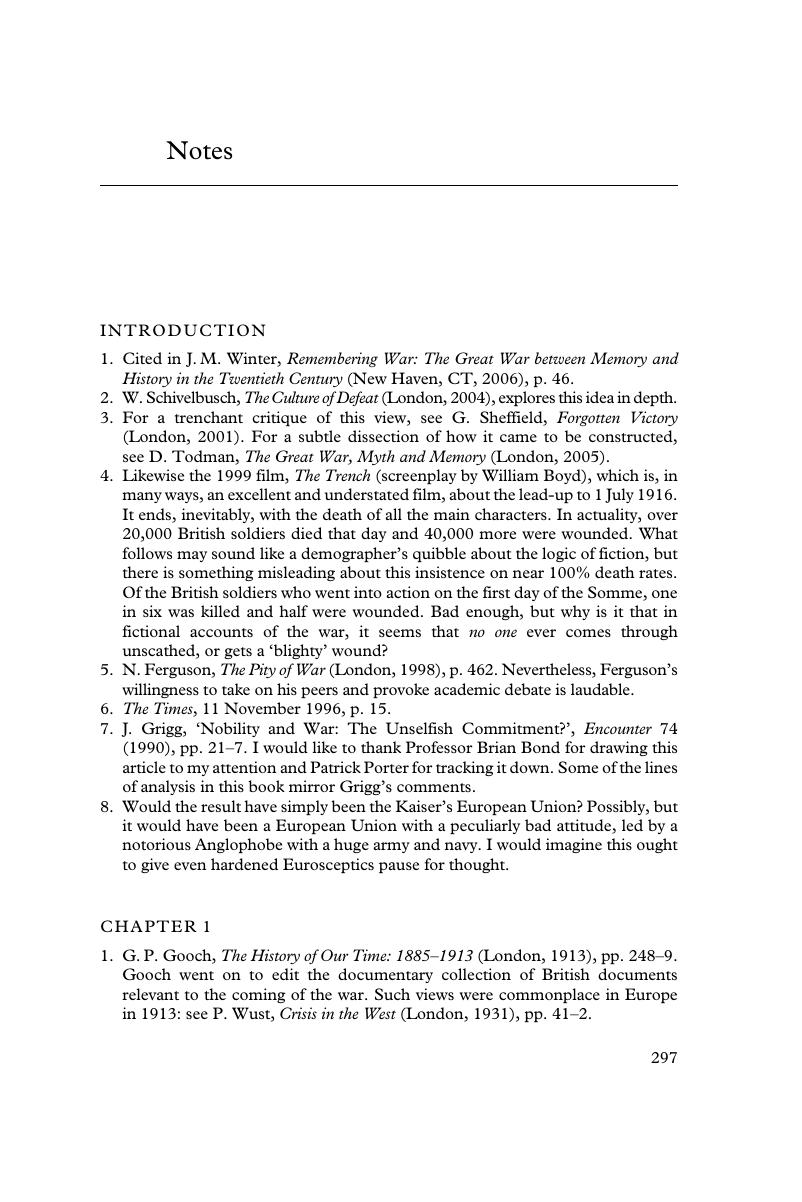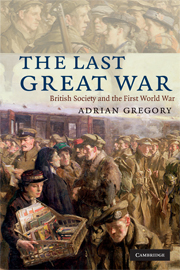Book contents
- Frontmatter
- Contents
- Illustrations
- Acknowledgements
- Introduction: The war that did not end all wars
- 1 Going to war
- 2 Defining the enemy: Atrocities and propaganda 1914–1915
- 3 From spectatorship to participation; From volunteering to compulsion 1914–1916
- 4 Economies of sacrifice
- 5 Redemption through war: Religion and the languages of sacrifice
- 6 The conditional sacrifices of labour 1915–1918
- 7 Struggling to victory 1917–1918
- 8 The last war?
- Conclusion
- Notes
- Index
- References
Notes
Published online by Cambridge University Press: 05 June 2014
- Frontmatter
- Contents
- Illustrations
- Acknowledgements
- Introduction: The war that did not end all wars
- 1 Going to war
- 2 Defining the enemy: Atrocities and propaganda 1914–1915
- 3 From spectatorship to participation; From volunteering to compulsion 1914–1916
- 4 Economies of sacrifice
- 5 Redemption through war: Religion and the languages of sacrifice
- 6 The conditional sacrifices of labour 1915–1918
- 7 Struggling to victory 1917–1918
- 8 The last war?
- Conclusion
- Notes
- Index
- References
Summary

- Type
- Chapter
- Information
- The Last Great WarBritish Society and the First World War, pp. 297 - 340Publisher: Cambridge University PressPrint publication year: 2008



